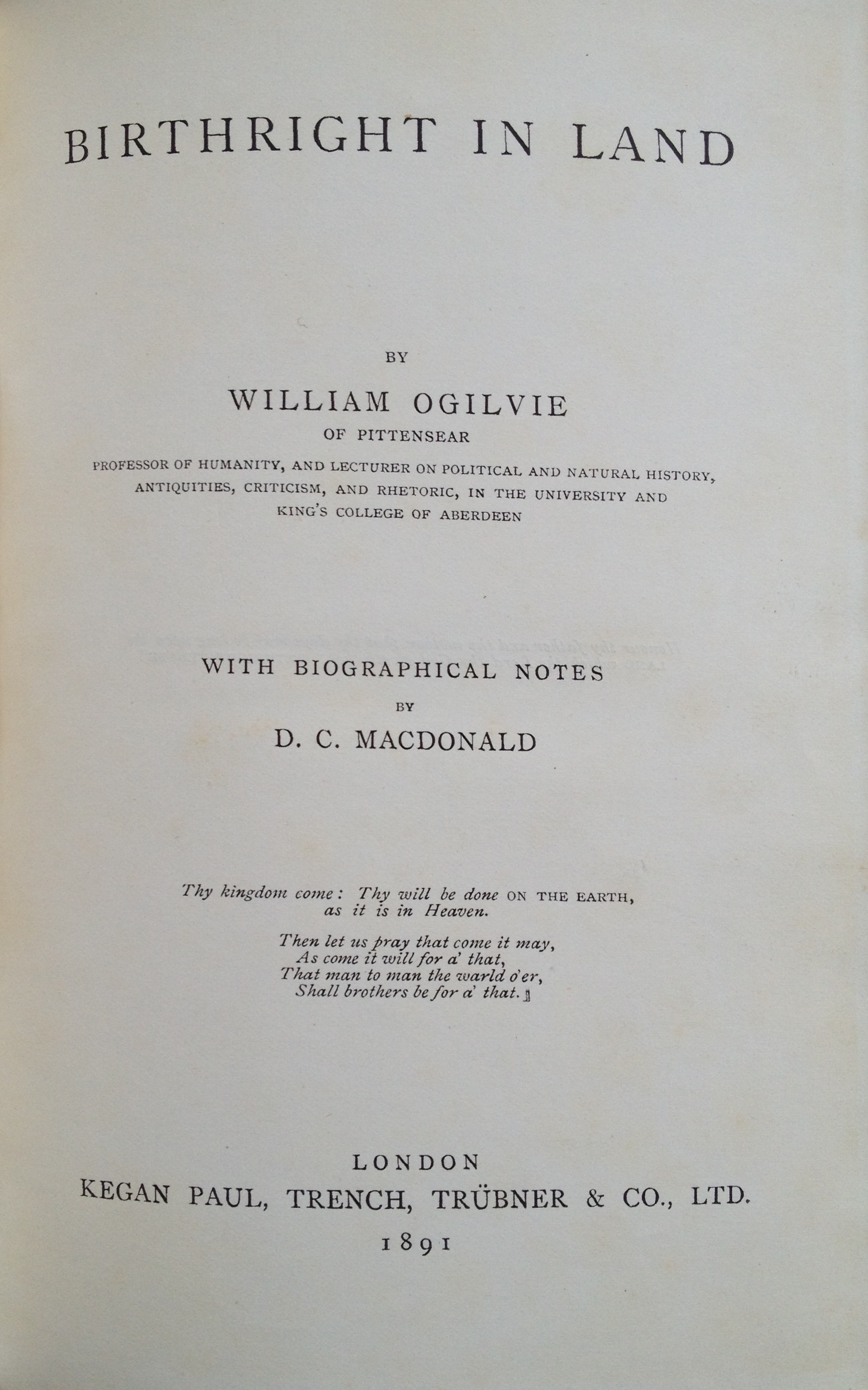Ogilvie, William, 1736-1819
Enlarge text Shrink text- His An essay on the right of property in land, 1838(name not given)
- DNB(Ogilvie, William, 1736-1819; publ. Essay on the right of property in land)
- LC data base, 9-7-89(hdg.: Ogilvie, William, 1736-1819)
William Ogilvie of Pittensear FRSE FSA (Scot) (1736–1819), known as the Rebel Professor and described by his biographer as the "Euclid of Land law Reform", was a Scottish classicist, numismatist and author of an influential historic land reform treatise. Published in London in 1781, An Essay on the Right of Property in Land was issued anonymously, necessarily it seems in a revolutionary age. As with John Locke, John Stuart Mill, Thomas Paine, Adam Smith and others—Ogilvie is seen as a leading proto-Georgist thinker. His masterwork was republished in 1838, then in 1891 (reprinted 1970) as the heart and subject of a much larger new work titled Birthright in Land, and in more recent years has been republished twice in modern, further expanded editions, using that same title. Ogilvie is cited as an influence by reformers internationally. The principal authority and main published source of information on William Ogilvie and his life is his 19th-century biographer DC MacDonald, who says:The facts known about Ogilvie's life are exceedingly scanty, and would of themselves be of little importance; but when considered along with the conception we form of the man as displayed on every page of his book, the smallest scrap of authentic information will in these days be of some interest, not only to "men of enlarged and inquisitive minds", but also to readers in general. It is in the book, however, and in the book alone, that we meet face to face with the author. Ogilvie instilled his soul into it, and he left us evidence that it was the chief aim of his life. We, therefore, should as soon think of separating the man Isaiah from the Book of Isaiah, as we should of separating the man Ogilvie from the book of Ogilvie.
Read more on Wikipedia >
 Personality
Personality


